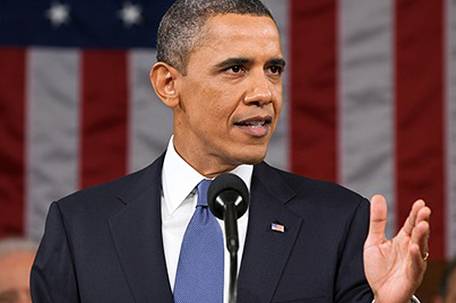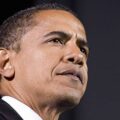
ABOVE PHOTO: President Barack Obama gives State of the Union Tuesday.
(Photo/The White House)
Finally.
That was the general sentiment expressed by Black economic activists in response to President Barack Obama’s State of the Union speech this week – a speech that surpassed previous SOTUs in dealing with economic woes that disparately affect African-Americans and other people of color.
“What I offer tonight is a set of concrete, practical proposals to speed up growth, strengthen the middle class, and build new ladders of opportunity into the middle class,” the President told the joint session of Congress during his fifth State of the Union address Tuesday. “Some require Congressional action, and I’m eager to work with all of you. But America does not stand still – and neither will I. So wherever and whenever I can take steps without legislation to expand opportunity for more American families, that’s what I’m going to do.”
The speech set a tone that the President is willing to bypass Congress to use executive orders where possible to advance his economic agenda in the coming months.
“Let’s see where else we can make progress together. Let’s make this a year of action. That’s what most Americans want – for all of us in this chamber to focus on their lives, their hopes, their aspirations. And what I believe unites the people of this nation, regardless of race or region or party, young or old, rich or poor, is the simple, profound belief in opportunity for all – the notion that if you work hard and take responsibility, you can get ahead. Let’s face it: that belief has suffered some serious blows.”
It was a common criticism from Black leaders that President Obama did not say or do enough during his first term pertaining to racial economic disparities. In fact, he often made the statement that a “rising tide lifts all boats”, implying that the poor – which are disparately people of color – would be lifted along with everyone else. Some say his new tone and strategies appear to recant that sentiment, but still doesn’t go far enough.
“It was good that he finally recognized and brought to the attention of everyone that government has to pay attention to lifting all boats and not kind of assume that just because the economy is growing that all boats are rising,” said economist Bill Spriggs, in an interview following the speech. “He said that frequently during the first term and I think that this was a clear statement that, no, the rising tide did not lift all boats. I think that is a positive step forward in terms of brain work.”
Ironically, Spriggs who was a part of President Obama’s economics team as an assistant secretary for policy at the Labor Department in his first term, is now one of his most meticulous critics. Now chief economist for the AFL-CIO, Spriggs says the SOTU was fairly strong, but the President didn’t go far enough in giving specific examples to describe the suffering and depth of disparities.
For example, Spriggs pointed out how the President spoke of inequality growing 30 years before the ‘great recession’ but he blamed it on technological growth and competition. “He said nothing about workers’ rights to organize, a declining minimum wage” and how their jobs were sent overseas, Spriggs said.
The President also left out the fact that racism and Jim Crow contributed to income disparities to the extent that even today unemployment remains twice as bad in Black communities as among Whites.
“Yes, it was definitely a step forward. But in terms of where the debate is, I thought he could have taken it further,” Spriggs said. “I think he could have taken it to another level…It was like ‘I can’t play too much to the people’, which was kind of a tepid step toward understanding that this is really about people…That was the moment for him to say. ‘I’m taking the government back to the people. You either lead, follow or get out of the way.’ And he didn’t say that.”
Among the President’s Proposals:
He has asked Vice President Joseph Biden to lead reform of job training programs in order to “train Americans with the skills employers need, and match them to good jobs that need to be filled right now.”
Working with colleges and universities, such the White House’s recent College Opportunity Summit in order to attain commitments from universities, businesses, and nonprofits “to reduce inequality in access to higher education – and help every hardworking kid go to college and succeed when they get to campus.”
Will issue an Executive Order “requiring federal contractors to pay their federally-funded employees a fair wage of at least $10.10 an hour – because if you cook our troops’ meals or wash their dishes, you shouldn’t have to live in poverty.”
Challenged to Congress to likewise raise the federal minimum wage: “Today, the federal minimum wage is worth about 20 percent less than it was when Ronald Reagan first stood here. Tom Harkin and George Miller have a bill to fix that by lifting the minimum wage to $10.10.”
Congressional Black Caucus Chair Macia Fudge (D-Ohio), also applauded the President’s speech as a great new beginning, but took a wait and see approach as to what will actually happen.
“I did hear what I wanted to hear. I do think that this is one of the strongest, if not the strongest, of the five state of the unions that he’s given,” Fudge said. I think he was very, very clear in the direction that he wants to lead this country. I think that he articulated very, very strongly a path that he expects this country to go and how he expects to lead us there,” she said.
But, given the typical push back from the politically divided Congress, she was reserved about how much would actually get done.
“The biggest drawback is going to be anything that he has to bring before Congress,” she said. “Because no matter what these people say, the will not want this President to succeed. And they will continue to obstruct for as long as they can.”
Civil rights leaders are also praising the speech for hitting the right points, but pondered whether it went far enough.
Dedrick Muhammad, director for NAACP Economic Programs, said the speech had the overtone that “Even though we’ve been technically in recovery for years, most of America hasn’t felt the recovery and much more action needs to be taken.”
However, like Spriggs, Muhammad said the President stopped short of fully describing the depth of the disparate suffering. “He could have gone into more detail about how bad the inequality is today,” Muhammad said. “To me it’s a real kind of doubling down of what he’s been talking about the last two, maybe four years. And I think the new piece was that the first [five] years of his presidency, it was always with the hopes that you can have Republicans come on and you can get things passed through Congress. Now, he still offers that possibility, but he deals much more with the reality that it might just be up to him about what he can do.”















Leave a Comment